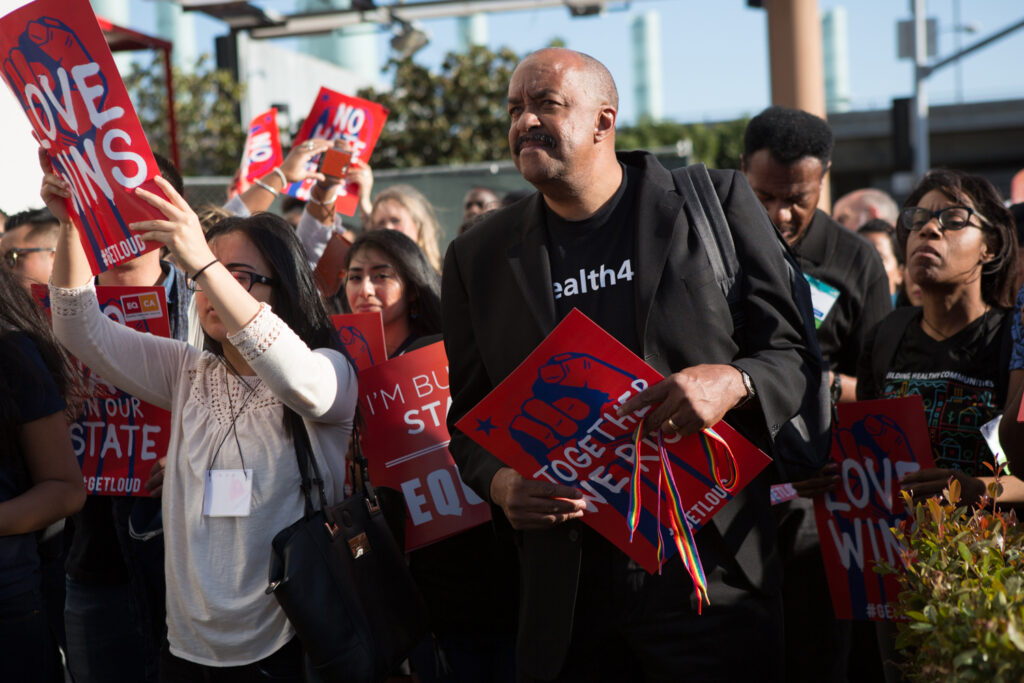Health philanthropist Robert K. Ross is 2023 Haas Center Distinguished Visitor
During his residency at the Haas Center in winter and spring quarters, Ross hopes to draw inspiration from the work of Stanford students and other community members and support the conversation around health equity and racial justice.
Robert K. Ross, CEO and president of The California Endowment, will share his work in advancing health equity and racial justice as the 2023 Mimi and Peter E. Haas Distinguished Visitor. During his residency in the winter and spring quarters, Stanford students and other community members will have the opportunity to gain insight from his experience meeting individual and community health needs in a variety of settings.
Each year, the Distinguished Visitor program selects a prominent individual whose life and career have made a significant public impact. Past visitors include community organizer Marshall Ganz, author and Native American advocate Gerald Vizenor, author and founder of the On Being podcast Krista Tippett, and journalist Ted Koppel, MA ’62.
“Dr. Ross has a wealth of experience in the fields of public health and philanthropy,” said Sarah Church, vice provost for undergraduate education. “We hope that students, faculty, and community partners will take the opportunity to engage with him during his visit.”
Prior to his work at The California Endowment, Ross practiced clinical medicine as a pediatric physician; served in several administrative roles, including as commissioner of the Philadelphia Department of Public Health; and was a faculty member at the San Diego State University School of Public Health.
The path to public health advocacy
Ross was born and raised in the Bronx borough of New York City. He studied medicine at the University of Pennsylvania, and after graduation, he practiced as a pediatrician at a community health clinic in Camden, New Jersey.

Advocacy and support: Robert Ross at a Health4All demonstration for immigrant rights in Los Angeles in 2013. (Image credit: The California Endowment)
His work at the clinic was pivotal in his transition from providing individual care to focusing on public health. Camden was in the midst of a public health crisis that many other U.S. cities were experiencing at the time due to a rise in the availability and use of crack cocaine. He saw how the intersection of environmental and social factors – poverty, hopelessness, structural racism – played an outsized role in community and family health. These social determinants of health led Ross to pursue greater structural changes.
“I wanted to enter a career path where the community was my patient rather than an individual being my patient, and public health became that venue,” Ross explained.
Ross spent over a decade working in the public sector in health leadership roles. In addition to serving as commissioner for the Philadelphia Department of Public Health, he was also the director for the Health and Human Services Agency in San Diego County and chair of the Los Angeles County Task Force on Alternatives to Incarceration, which worked on health-focused strategies to reform the criminal justice system and reduce incarceration.
At The California Endowment, Ross transitioned his focus to health philanthropy, where he continues to further the organization’s goal of advancing health and wellness for underserved communities through funding, advocacy, and support for campaigns such as Health4All, a movement organized by undocumented Californians whose advocacy led to an expanded Medi-Cal program that included coverage for undocumented young people.
“In our experience, systemic change should emanate from those who are historically most marginalized, most oppressed, and most suffering the effects of racial injustice. We should view them as architects of the new future, and not just as recipients of services,” Ross said.
Obstacles to equity
From the many viewpoints that Ross has had of the health care landscape, he has observed two consistent obstacles in the effort to achieve health equity: race and place.
“I wanted to enter a career path where the community was my patient rather than an individual being my patient, and public health became that venue.”
—Robert K. Ross
“Race matters in health, in health care, and in health status. Those of us in philanthropy, government, and the nonprofit sector have to recognize and call out the matter of race,” Ross said.
Regarding place, Ross has observed how the area someone lives in has a direct correlation with an individual’s health destiny. He believes that people who work in public health need to look beyond the health care system and acknowledge the impact of outside factors, such as housing, economic inclusion, and criminal justice, with structural racism as the common thread.
During his residency at the Haas Center, Ross hopes to draw inspiration from the work of Stanford students and other community members. He also wants to support the conversation around health equity and racial justice.
“Both the field of philanthropy and Stanford University are on a journey around full equity, full inclusion, and racial justice. We have a great deal to learn from one another’s struggles,” Ross said.
“I am simply over the moon about Dr. Ross’ visit to our community,” said Juliet Brodie, professor of law and faculty director of the Haas Center for Public Service. “He is an inspirational leader who can show all of us how we can advance racial, economic, and health equity across a range of disciplines and pathways of service. Whether students are interested in public health, technology, education, law, or any other field, Dr. Ross’ vision of system change will elevate their learning and accelerate their impact.”
Dr. Ross will be on campus for parts of winter and spring quarters. The Distinguished Visitor Lecture, which will introduce Dr. Ross to our community, will be held on Jan. 18, 2023. Reserve your seat to attend the lecture and contact the Haas Center for more information about the visit.
